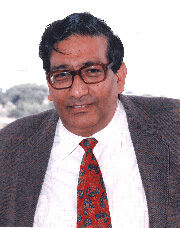|
| Help | |
| You are here: Rediff Home » India » Business » Interviews » ISB dean Mendu Rammohan Rao |
|
"However, there is still a lot more to do," he adds. Having taught at other B-schools like the Indian Institute of Management-Bangalore and at the Stern School of Business, New York University, he says that the ISB is different as it mandates work experience for admission. "Besides, we offer a one-year MBA programme which has become a popular model today. Other schools are also beginning to offer one-year programmes now, making us realise that imitation is the best form of flattery," he says. In conversation with Business Standard, Rammohan Rao discloses what lies ahead for the B-school in the years to come. What's the strength of ISB in terms of faculty and students and what is the kind of growth that you are looking at in future? We have 11 professors as of now and will be inducting five more this year. Besides, we have five visiting faculty every year. In the next four years, we should have a strength of 45 full-time professors at our school. In terms of students, we have grown to 347 students this year and are expecting the number to rise to 415 next year. There are many who wish to join the ISB but are hesitant because of the fee structure (Rs 13 lakh as tuition fees). Will there be a change on this front? Besides, looking at the growing brand value of the school will you be looking at starting a two-year MBA programme for fresh graduates in the future? Yes. Fees have been an issue. But a marginal hike due to inflation is inevitable. And about starting a two-year programme for fresh graduates, we do not have any plans on this front right now. How is the brand value of ISB growing in the international arena? We are attracting a lot of Non-Resident Indians. We have 60 full-time NRI students this year. We have a student from Pakistan as well this year. We are targeting south-east Asian countries like Sri Lanka and Bangkok now and are looking at having at least 20 percentage of foreign students in the next 3-4 years. This is a difficult task. Most of the students today do a post-graduate programme for a job. So, what's the basic aim of ISB in giving a degree to already working professionals? All the students at ISB have work experience. But many over here, either want a career change or wish to keep themselves updated with new subjects. Besides, students who have prior work experience seem to appreciate the programme better. Whether there is a quantitative benefit in terms of a hike in salary for a student who passes out of ISB is difficult to evaluate. At present, the ISB does not participate in the ranking of B-schools. Do you feel that the ranking procedure is not appropriate and will you be participating in the rankings in future? None of the existing procedures of ranking B-schools is good both within India and abroad. There is no stability in the ranking criteria as well. There is a different analysis done by each research group. Nevertheless, we will be participating in the ranking procedure, two-three years down the line. What are the challenges that you think the ISB will have to face in the coming years? Challenges include attracting top-quality students from India and internationally as well, getting more female students (at present around 16 per cent of the total number of students are female). Besides, we would also have to ensure that we have good research-oriented faculty at the school. Powered byMore Interviews | ||||||||||||||||||||||||||||||||||||||||||||||||||||||||||||||||||||
|
|
|
| © 2008 Rediff.com India Limited. All Rights Reserved. Disclaimer | Feedback |
 Professor Mendu Rammohan Rao, dean of the Hyderabad-based Indian School of Business since July 2004, is happy with the way the B-school has shaped up in the last few years.
Professor Mendu Rammohan Rao, dean of the Hyderabad-based Indian School of Business since July 2004, is happy with the way the B-school has shaped up in the last few years.